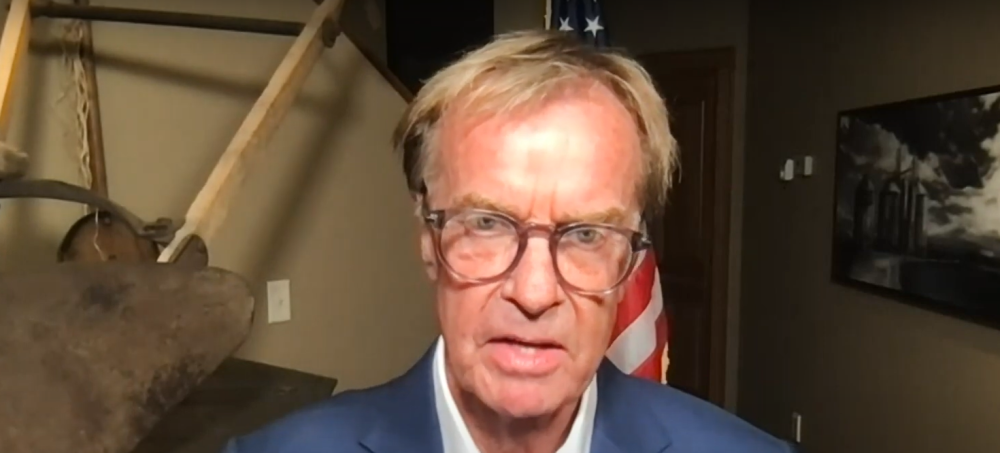Without food security, countries will not have national security, warns former U.S. Ambassador to UN Agricultural Agencies Kip Tom

Brasilia, 15 July 2024 (IICA) - Food security is intimately linked to national security in all countries around the world. Therefore, it is essential that smallholder farmers have the tools to increase their productivity, contribute to economic growth, and improve their incomes and quality of life.
This was stated by Ambassador Kip Tom, a U.S. agricultural producer and former Permanent Representative of his country to the UN agencies in Rome, in an interview with the AgroAmerica program, broadcast on the Brazilian TV channel Agro Mais.
"While we cannot do without the large companies engaged in industrial agriculture, we need family farmers. They must be supported by the private sector to access new technologies, education, and knowledge. There must also be public policies in this direction," Tom said.
The former permanent representative, who is part of a family with seven generations linked to food production in the Midwest of the United States, pointed to Brazil as a positive example, a country which, thanks to science and innovation, has become a world leader in the production of soybean and other commodities in recent decades.
"I lost my father a couple of years ago," he recalled. "Before he died, he took me to the fields where he started working and where I also worked. He talked to me about the productive yields when he was young and how extraordinarily they had grown over the years with the help of science and with the use of fertilizers, digital technologies, and good practices. Today we can see that artificial intelligence can be used to increase yields while caring for the environment. I see great potential in countries on our continent, such as Brazil, Uruguay, and Argentina. I am very excited about the future of agriculture."
Tom explained that he himself began as a small farmer and noted that it is positive for countries to strike a balance between large, medium, and small producers, but it is the former who must worry about training and providing tools to the latter to grow.
"I have never met a small-scale farmer who did not want to grow and increase the size of their operation. They want to produce food for the community; therefore, they must be able to access basic technologies to deal with pests and diseases and better adapt to climate change," he warned.
The Role of IICA
In another part of the interview, Tom emphasized the importance of IICA's role in strengthening a narrative that presents agriculture to the world not only as essential for ensuring food security but also for the development of countries.
"IICA Director General Manuel Otero is doing a great job building alliances with other organizations and sectors that, like IICA, are key to the future of agriculture and to safeguarding food security," he said.
Tom also spoke about the impact of climate change on the work and livelihoods of farmers in Latin America and the Caribbean.
"Throughout history, our climate has always undergone variations, and farmers have adapted to them for thousands of years. Today, climate change is advancing at a much faster rate, but with innovation and science, we can adapt. Genetics and new technologies provide means to remove carbon from the atmosphere. We can use fewer resources and produce more," he noted.
Tom also criticized some environmental regulations that are being proposed, which could have negative consequences, especially for medium-sized producers.
"I don't think we, from the Americas, should be telling Europe how to farm, but neither should Europeans pretend to teach us. Local contexts must be respected, and in each country and region, the protagonists know how to adapt to particular conditions," he said.
"No one cares more about the environment than farmers. They want to preserve it for future generations. Farmers know how to innovate, reduce greenhouse gas emissions, and increase productivity. Many soils have degraded, but today in our continent, no-till farming, the use of cover crops, and other practices have become widespread, allowing us to restore it. Countries like Brazil, Argentina, and Uruguay have been leaders in soil preservation."
Tom also drew attention to the need for international cooperation to address supply chain constraints and the need for countries on the continent to have reliable suppliers to ensure food security for their people.
More information:
Institutional Communication Division.
comunicacion.institucional@iica.int